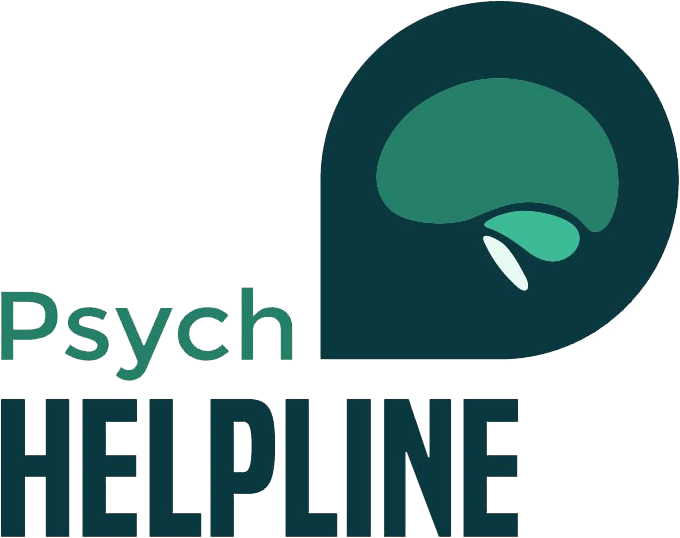Seasonal depression or seasonal affective disorder is a type of mental disorder that is usually triggered by seasonal changes. On average people are more likely to experience seasonal depression right around the emergence of colder weather for instance; during winter or fall. In this sort of scenario, you are more likely to experience a resolution in symptoms right around the emergence of summer. When it comes to the symptoms of SAD, people experiencing it usually feel sluggish, struggle with existential dread, might feel worthless, tend to oversleep, experience unhealthy eating patterns, and can also feel agitated at all times.
Here are a few coping mechanisms that have been tried and tested in the past. Although these strategies might not be enough to treat this disorder, trying them can surely make things a bit smoother for you.
Keep Track Of Your Routine
One of the many things that can elevate the impact of seasonal depression is the lack of routine. Not having a proper routine or the inability to perform various tasks on time will only harm you in the end. For instance; those who lack a proper sleeping schedule often suffer at the hand of SAD. Even though a lack of routine isn’t the only possible cause behind this anomaly it’s still something that can make your situation worse. So, it’s better if you’re taking your meals on time and waking up early in the morning. Waking up during the right hours of the morning will also ensure that you have access to an adequate amount of sunlight, which helps with seasonal depression.
Optimum Vitamin D Intake
Various studies in the past have concluded that an individual’s vitamin D intake can have a direct impact on the probability of having seasonal affective disorder. Thus it is easier to conclude that those who have been consuming a diet that lacks optimum vitamin D might be more at risk of getting seasonal depression during the year. If you have certain doubts regarding your vitamin D intake then it’s best to get yourself tested first.
Once you take a closer look at your vitamin D levels it might be easier to calculate your next move. Now it’s time to make a few dietary changes by including items that are rich in vitamin D or you can even try vitamin D supplements suggested by your physician. One of the easier ways of getting more vitamin D is sunbathing. It’s best to install the weather app on your smartphone if you don’t have it already. Considering how it’s really hard to get enough sunlight during colder months it’s best if you’re prepared in advance and by keeping tabs on those future weather updates.
Keep Tabs On Your Alcohol Intake
Coping mechanisms relieve a certain type of issue but not all coping mechanisms are healthy. An unhealthy coping mechanism might make us feel better at the moment but would be dangerous for us in the long run. One of these many unhealthy coping mechanisms is alcohol consumption. Although it is alright to consume alcoholic beverages every now and then this act can result in bigger troubles if you are using alcohol as a coping mechanism.
For instance, if you’ve been feeling sluggish because of seasonal affective disorder you can feel even more low after drinking an alcoholic beverage on top of that. Additionally, consuming lots and lots of alcohol just to numb the pain of aggravating thoughts can make you spiral down even more. It’s best to be certain that you’re keeping your alcohol intake in check during the holiday season while attending Christmas dinners or new year’s Night events. If you’re currently struggling with a drinking problem, this could be contributing more to the SAD symptoms you are facing. Once you cater to the former the latter might resolve on its own.
Plan Things Ahead
We don’t usually wait around for the cold breeze to strike, we always prepare in advance. You’ll find yourself shopping for winter coats, mufflers, gloves, and weighted blankets even before the season even arrives. So if we take these measures for the outside why don’t we make preparatory measures for the inside as well? Plan things ahead by compiling a list of activities or actions that relieve SAD. Most of these activities are going to vary from person to person because all of us have different tastes. There will be only one thing in common; the fact that most of these acts provide us the much-needed serotonin boost we need around seasonal changes. Now, you really don’t have to do something over the top as sometimes it’s the simplest things in life that provide us pleasure.
Start by looking into any local social endeavors or charitable work. If you find a way to surround yourself with the local community and what you’re doing actually makes you feel like you’re doing something good then of course you’ll feel more uplifted. Furthermore, reconnecting with the ones you love uplifts your mood like nothing else. Plan dinners with close family or friends. Compile a list of horror movies that might be appropriate for a spooky winter night. Some people even pick up knitting, join a book club or pick up some other hobby that would keep them indulged and entertained. The key is to start doing things ahead of time, in this way the seasonal change wouldn’t abruptly affect your mood and you’ll be able to transition with more ease.
Don’t Miss Out On Physical Activities
There are plenty of excuses that we tend to make up in order to avoid working out. Sometimes it’s the tight work schedule, sometimes we’re too mentally exhausted. Additionally, during the winter including any form of outdoor physical activity in your routine seems very out of the question. The weather’s pretty intense, nobody wants to head out for a quick jog fearing illness. What a foolproof way of avoiding exercise, isn’t it? In that case, make sure that you’re finding other ways to establish a regular workout routine.
Exercising helps release happy hormones in your body, elevating your mood and reducing the risk of developing depression. According to a 2019 study conducted by Harvard University; “Exercising each week can help reduce SAD symptoms including depression and exhaustion during chillier months of the year.”
Attending an online Zumba class is a fun and interactive way of breaking a sweat. You can even try hot yoga while watching a few YouTube videos. If you can afford indoor exercise equipment then that would be even great. Running on a treadmill at least thrice a week can also help you in keeping control of that holiday weight you might’ve put on. Remember, it doesn’t matter which form of workout you’ve included in your schedule the only thing that matters is that you are doing it.
Bright Lights Will Get The Job Done
During winter or fall it’s pretty difficult to get enough sunlight. The days are obviously way shorter and the nights are comparatively longer. Consequently, even if you have a free day on your hand and plenty of time, the chances of sitting in the sun for long intervals still remain slim. In that case, you can try and schedule light therapy. Dedicate a few hours of the day to this endeavor and don’t let it be replaced by some other task. Also, if you reside in a country where the sun rarely shines bright, there are other things that can be done. There are plenty of affordable phototherapy boxes available in the market.
What’s great about a phototherapy box is that you can adjust the wavelength of the light coming from these bulbs on your own, depending on how sensitive you are to light. Research shows that dedicating at least 20-30 minutes to light therapy can noticeably reduce the impact of SAD. It’s actually better if you schedule these hours dedicated to light therapy, during the day. It can be done before you head over to work, an academic institution, or simply have a long day ahead.
Stay Open To Trying Alternative Means
Aromatherapy is an area worth exploring if you haven’t done it before. You can find millions of testimonials online alluding to the fact that aromatherapy greatly relieves mood. Aromatherapy can greatly calm your nerves down when you’re feeling on edge, help in inducing sleep when you’re struggling, and it can elevate your mood when you feel too cranky. There’s a wide range of essential oils that you can explore until you land on one that suits you. Take your time to find one that doesn’t seem too strong to irk you out or one that’s soothing enough to not cause a headache.
Some of these essential oils may include; lavender oil, eucalyptus oil, peppermint oil, tea tree oil, lemon oil, etc. While tackling seasonal depression it’s important that you have a self-care routine. Doing these little rituals every now and then ensures that you’re investing your time in doing something that helps you. While carrying out one of these self-care sessions you can include essential oils. For instance; while running a warm bubble bath after a long day drop 3 or 4 drops of your favorite essential oil. You can even try dropping 1 or 2 drops of lavender oil near your pillow as it can elevate your mood before bed.
Plan A Vacation
If you live in a country where winters are slightly more cruel than tropical regions then this might be the time to plan a vacation with your family. Staying in warmer climates might be a great way of avoiding seasonal depression. This will also ensure that you’re getting the right amount of sunlight and have ample amount of opportunities to move around. Additionally, the excitement surrounding the idea of a trip will also keep your energy up.
Orchestrate A Gratitude Journal
Entering a negative headspace can be quite the norm when you’re depressed. Like any other form of depression, seasonal depression can also impact the way you view yourself, your surroundings, and your life. Having a negative frame of thought can make a person believe that everything that seems to be wrong in their life will always stay the same. It can make you look over everything that is right in your life. During times of such calamity, it is essential that you have someone or something in your life that would emotionally ground you.
Having a gratitude journal comes in pretty handy in those times. A gratitude journal generally consists of every good thing that has happened to you in your life and everything that you are thankful for. It could be something as simple as a significant other that supports you through thick and thin or it could be the privileges bestowed upon you through fate. There are no particular criteria, you can write about anything that comes to mind in your gratitude journal.
It is quite simply a recollection of all those things that make life worth living in your case. The presence of a gratitude journal ensures that whenever you feel extremely low or emotionally drained you can turn back a few pages and reconsider your mental framework. Going over all those things that you are thankful for emotional grounds you and makes you hopeful for the future. It can give you a sudden surge of energy and help you realize that tough times don’t always stay the same.
Final Words
A lot of us have low days every now and then. Actually, it’s quite the norm to experience irritability nowadays thanks to our rigorous routines. But if you or someone you know has been feeling low for plenty of days, now might be the time to do your research. Do not try to self-diagnose yourself after reading a few articles on seasonal affective disorder online. Get in touch with a healthcare professional in your locality. Seasonal affective disorder is actually treatable and there are many other coping mechanisms that work for people who are struggling with it. If you or someone close to you has experienced seasonal depression in the past are there any particular coping mechanisms that made things easier for you? Let us know in the comment!







